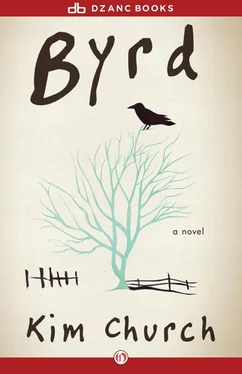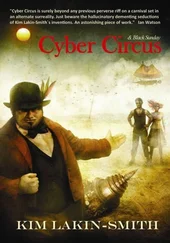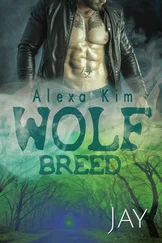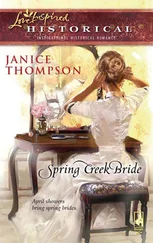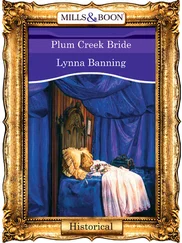Nobody tells you what the road can do — the greasy fast food, the speed-laced drugs. Every club is another piss hole painted black, every club owner a crook. The same women line up after every show.
His mother thinks he’s out making a name for himself. “You’re seeing it all,” she says when he calls home.
“I sure hope not,” he says. Because what he’s seeing is all the same. It’s not some great romantic adventure, not like Kerouac. The deal with Kerouac was, he could come in off the road any time he felt like it. And he always had somebody, his mother or his old lady or some friend’s old lady, waiting to feed him chicken soup and wash his socks while he sat in some nice room writing his masterpiece.
Addie works at the Readery, a secondhand bookstore in a decrepitly elegant Victorian house on Mendenhall Street. She lives in an apartment on the top floor, with tall ceilings and faded wallpaper and heart pine floors and braided rugs and, outside the front window, a magnolia tree with big clean-smelling blossoms. Her landlord-slash-boss is a lumberjack-looking man named John Dunn, like the poet but with a different spelling. “Batter my heart!” Addie likes to call to him from the stairs.
The Readery is open only at night. It’s the hub of Greensboro’s intellectual nightlife, where professors convene to read, drink coffee, smoke, listen to scratchy records, and say things to provoke and impress each other. Addie’s philosophy professor sometimes stops in. He doesn’t sit around pontificating and arguing with the others. He’s a loner, a browser, always coming up to Addie with some question. Has she noticed that both these books were dedicated to the same person? How can she be sure the author’s signature is authentic? Would she mind putting on this album (always jazz) instead of whatever is playing?
He stays late. Some nights after closing she goes upstairs to her dark apartment and looks out her window and there he is on the sidewalk below, his face upturned, street light shining on his glasses.
Roland moves with the band to Texas, to an apartment with roaches the size of his feet.
The professor is the last customer in the store. Addie asks if he’d like to see her apartment. He follows her upstairs.
She puts on Joni Mitchell, For the Roses . They sit on the sofa and she peels a tangerine and offers him slices.
“Sweet,” he says. Tangerine juice dribbles down his chin. He is like a character in one of Joni’s songs.
Dear Byrd ,
I have learned that it’s possible to become satisfied with your life too soon .
The professor and his wife celebrate their anniversary as usual, by going out to dinner. They sit at their regular table near the bar, their hands folded in front of them, their rings giving off a dull glow. There is a white linen cloth on the table, a small oil lamp, and a red flower in a glass vase. The professor trusts his wife to know the name of the flower, and to remember it, so that days from now, if he’s looking for a way to make conversation, he can ask her, “What kind of flower was that in the restaurant, the red one?” And she’ll answer him, and for that instant they can remember tonight and it will be as if they’re back at this starched white table, listening to piano music.
They begin with cocktails: Campari and soda for him, vodka martini for her. They don’t have to order; the waitress remembers. The professor is flattered to have his drink remembered, even though no one else drinks Campari. As usual, he will leave an extravagant tip.
His wife cocks her head while the waitress recites the dinner specials. The waitress doesn’t bother with menus; they never order from the menu. It’s an unspoken rule with them. Whereas when the professor takes Addie to a restaurant (never this one, where he’d be recognized) she insists on reading everything in sight. She is a glutton for words.
“I’ll try the salmon,” his wife says.
“I’ll have the same,” he says.
She is a small, shapely woman, his wife, with a blameless face and a small, disapproving mouth. She’s wearing her navy blue out-to-dinner dress with a pearl choker.
The professor sips his drink. It tastes bright and bitter and gives him a sweet, heady feeling. Not drunk, but on the verge.
Addie strides into the restaurant in her boots, feeling powerful. She feels like making a scene. Then she sees them at their table in their dress-up clothes, their faces tired, glazed over. And she knows at once there will be no showy ending. There’s nothing left to end.
It ended, she can’t say when, not with a big drama but with a lot of little ones. The night the professor sat on her sofa looking miserable and she asked him what was wrong and he said, he actually said , “Sex with my wife isn’t so good lately.” And the time he showed up late for their day-after-Christmas dinner wearing a shiny new leather jacket, peanut butter brown, with a zipper and an elastic waistband that made the belly balloon. A gift from his wife. Addie wanted to poke it, deflate him. She could have forgiven him for being late, but not for that jacket — for having the nerve to wear it, for having a wife who would pick out something so ugly.
Lately everything has felt like an ending. The sandpaper scrape of his loafers on the stairs, his light tapping on her door. The way he still pretends not to presume, even though he keeps clothes in her closet and a toothbrush and razor in her bathroom. Even though her once-airy apartment has taken on the dark, garlicky smell of him.
It feels like an ending every time she sees him standing there, smiling and false.
The professor tries to ignore Addie. She’s at the bar, next to the piano player, who’s on his break. She takes a cigarette out of her purse, taps it on the bar — a habit the professor has always found annoying; he can almost hear it over the din in the restaurant — and the piano player offers her a light. He uses a real lighter, not a disposable. He talks, and Addie nods and makes a show of listening.
The professor isn’t fooled. He knows why she’s here.
He thinks back to his first night in her apartment. “I have a policy,” she said, “against getting involved with my professors.” A policy she honored for as long as she was a student, which was years longer than most people.
From the beginning, he was clear about what he could offer and what he couldn’t. He and Addie made a point of not letting whatever they did together get in the way of what they did apart. He knew she saw other people. Sometimes she was unavailable for months. But even that on-and-offness, that in-betweenness, was something. There was energy in it, possibility. It made his marriage tolerable.
He doesn’t know when she first started having different expectations, when her vocabulary changed, when she first started using words to hurt him. When he stopped being brave, adventurous, risk-taking, and became a coward.
He is a coward. If he didn’t know it before, he knows it now, tonight, on his anniversary, in his favorite restaurant, the only place in Greensboro that serves Campari, while Addie sits at the bar flirting with the piano player.
She cups her hands around her wineglass and rests her mouth on the rim, not quite drinking. The professor is the one who taught her about wine, and about jazz. He introduced her to Merlot and Coltrane, Shiraz and Thelonious Monk.
The flame in the oil lamp is sputtering. The professor polishes off his drink, sets down his glass, and right away the waitress brings their dinner — salmon topped with white caper sauce, rosemary-roasted sweet potatoes, and his favorite, grilled asparagus. He bites into a spear. Smoky, delicate, still slightly crunchy. Delectable.
Читать дальше
